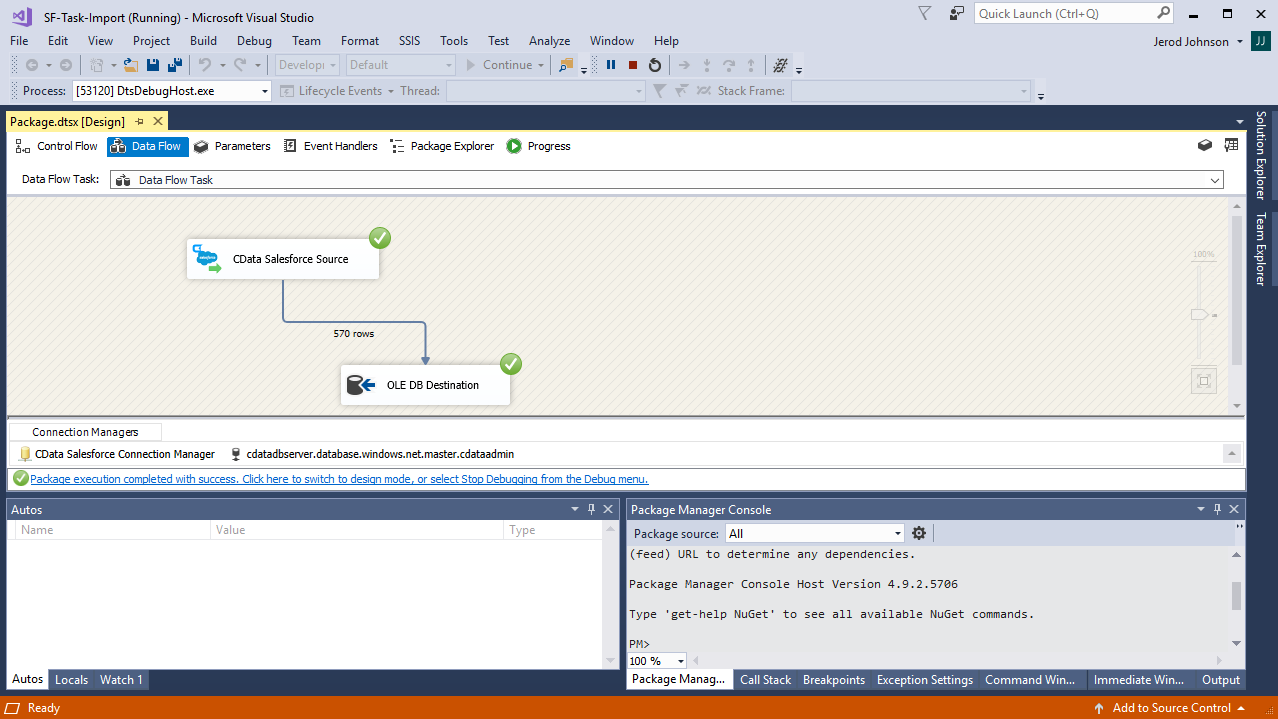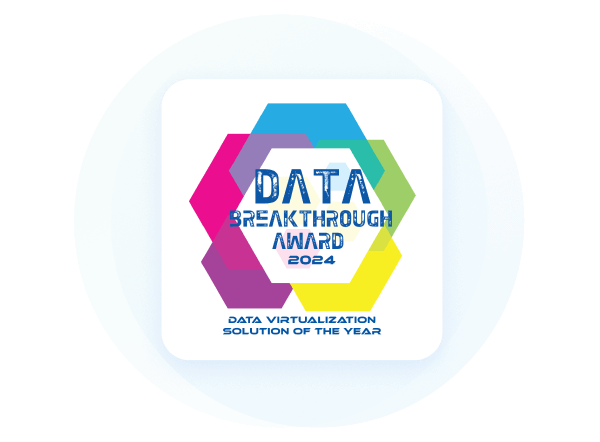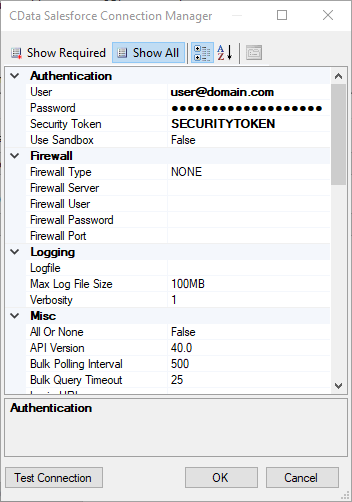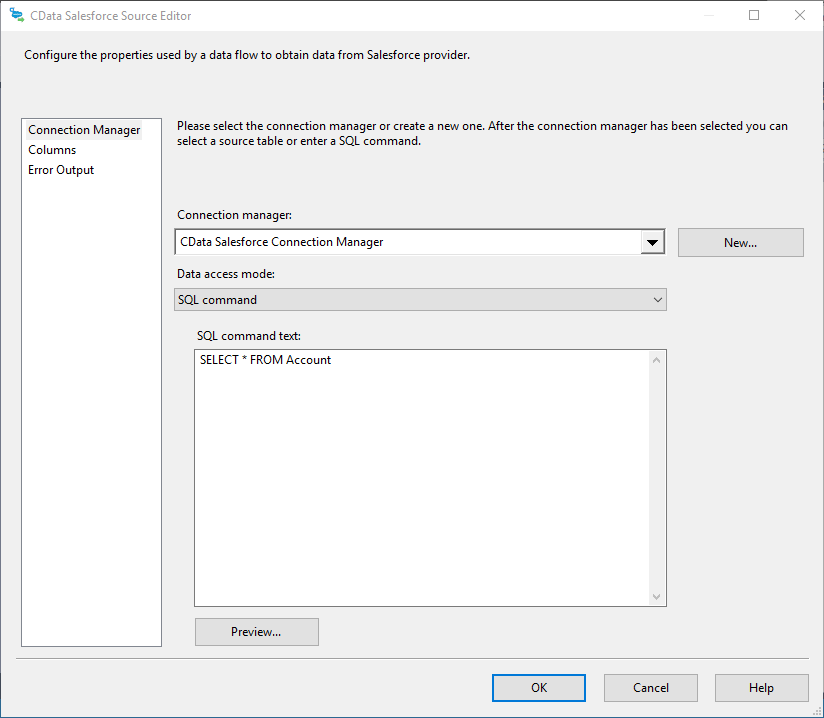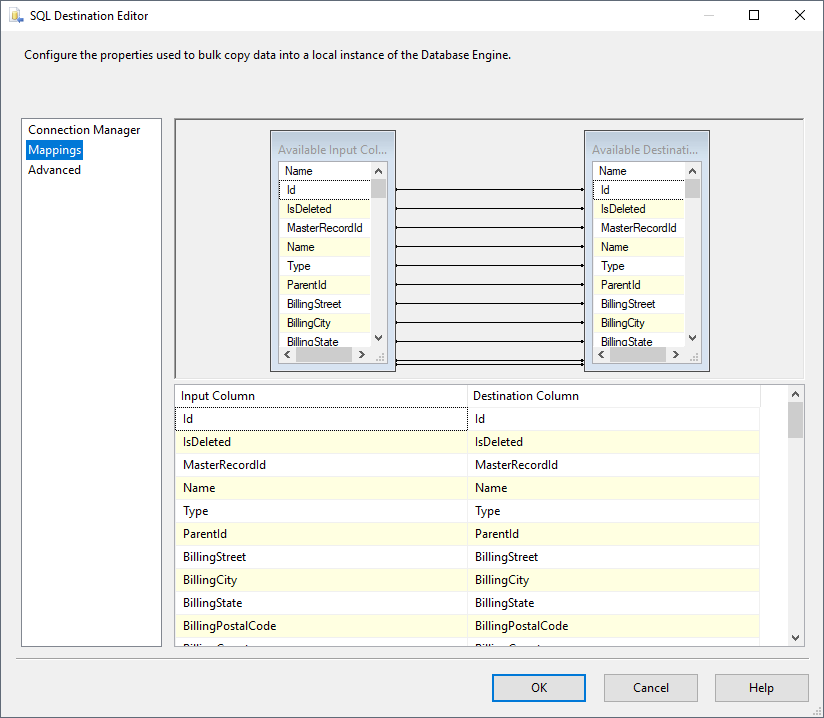Discover how a bimodal integration strategy can address the major data management challenges facing your organization today.
Get the Report →How to Import Adobe Analytics Data into SQL Server using SSIS
Easily back up Adobe Analytics data to SQL Server using the SSIS components for Adobe Analytics.
Using SQL Server as a backup for critical business data provides an essential safety net against loss. Backing up data to SQL Server enables business users to more easily connect that data with features like reporting, analytics, and more.
This example demonstrates how to use the CData SSIS Tasks for Adobe Analytics inside of a SQL Server SSIS workflow to transfer Adobe Analytics data into a Microsoft SQL Server database.
Add the Components
To get started, add a new Adobe Analytics source and SQL Server ADO.NET destination to a new data flow task.
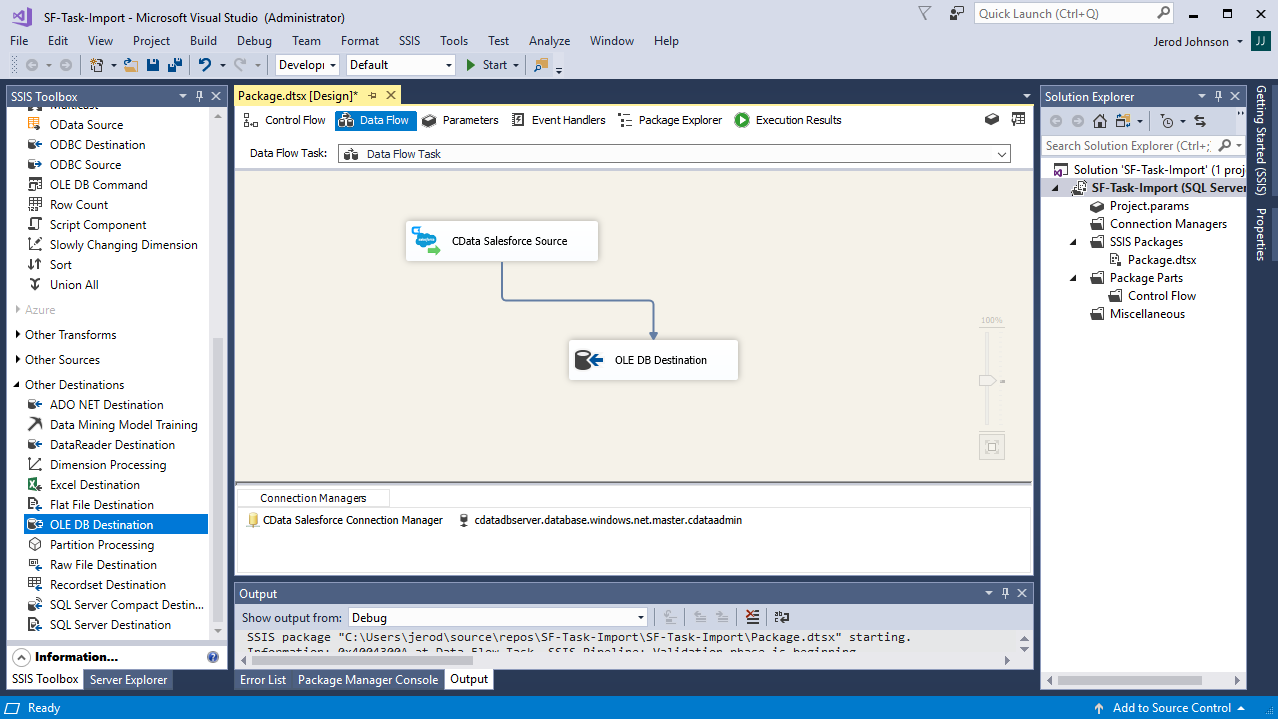
Create a New Connection Manager
Follow the steps below to save Adobe Analytics connection properties in a connection manager.
- In the Connection Manager window, right-click and then click New Connection. The Add SSIS Connection Manager dialog is displayed.
- In the Connection Manager type menu, select AdobeAnalytics. The CData Adobe Analytics Connection Manager is displayed.
- Configure connection properties.
Adobe Analytics uses the OAuth authentication standard. To authenticate using OAuth, you will need to create an app to obtain the OAuthClientId, OAuthClientSecret, and CallbackURL connection properties. See the "Getting Started" section of the help documentation for a guide.
Retrieving GlobalCompanyId
GlobalCompanyId is a required connection property. If you do not know your Global Company ID, you can find it in the request URL for the users/me endpoint on the Swagger UI. After logging into the Swagger UI Url, expand the users endpoint and then click the GET users/me button. Click the Try it out and Execute buttons. Note your Global Company ID shown in the Request URL immediately preceding the users/me endpoint.
Retrieving Report Suite Id
Report Suite ID (RSID) is also a required connection property. In the Adobe Analytics UI, navigate to Admin -> Report Suites and you will get a list of your report suites along with their identifiers next to the name.
After setting the GlobalCompanyId, RSID and OAuth connection properties, you are ready to connect to Adobe Analytics.
![Configuring a connection (Salesforce is shown).]()
Configure the Adobe Analytics Source
Follow the steps below to specify the query to be used to extract Adobe Analytics data.
- Double-click the Adobe Analytics source to open the source component editor.
- In the Connection Manager menu, select the connection manager previously created.
- Specify the query to use for the data extraction. For example:
SELECT Page, PageViews FROM AdsReport WHERE City = 'Chapel Hill'![The SQL query to retrieve records. (Salesforce is shown.)]()
- Close the Adobe Analytics Source control and connect it to the ADO.NET Destination.
Configure the SQL Server Destination
Follow the steps below to specify the SQL server table to load the Adobe Analytics data into.
- Open the ADO.NET Destination and add a New Connection. Enter your server and database information here.
- In the Data access mode menu, select "table or view".
- In the Table Or View menu, select the table or view to populate.
- Configure any properties you wish to on the Mappings screen.
![The mappings from the SSIS source component to SQL Server. (Salesforce is shown.)]()
Run the Project
You can now run the project. After the SSIS Task has finished executing, your database will be populated with Adobe Analytics data.
